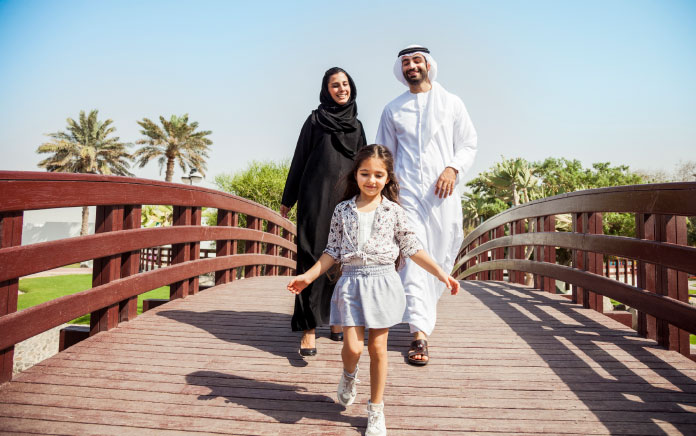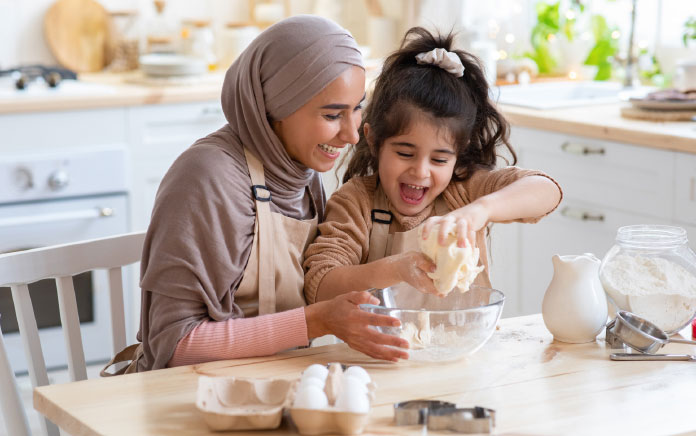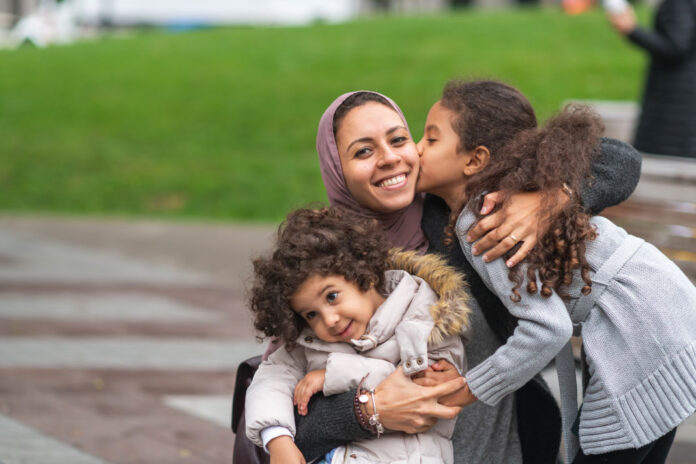Explore the modern Arab mother’s multifaceted role in today’s world with Dr. Diana Cheaib Houry, a psychotherapist at Thrive Wellbeing Centre in Dubai who is licensed by the Community Development Authority.
In a world marked by constant evolution, the role of women has known many changes, specifically in an Arab world exposed to modernity. Access to education and to the public sphere, mainly through work, has made women’s identity more complex and their role multifaceted, no longer restricted to the roles of spouse and mother. Women have become an essential element in the social and economic world, but naturally this change also comes with an array of challenges, especially for mothers.
While change has been welcomed by women and fought for, embracing it isn’t always an easy process. Today’s women have choices and can set their priorities. Whilst choosing can be a symbol of freedom, it can often expose women to guilt, especially around motherhood which is still a very important component of women’s identity.
During our clinical practice, we often witness the fear of missing out on motherhood. Women are frequently reminded that “careers are important but don’t forget your personal life”. We also witness how becoming a mother can be an intense identity shift. A lot of apprehension can be shared around how to manage a career and motherhood, with many women confessing after giving birth “no one prepared me for this” or “this is not what I expected”.
 Here are a few things we need to consider:
Here are a few things we need to consider:
Who Are The Modern Mothers of Today?
Testimonials of today’s mothers give us a glimpse into who they can be:
They are definitely more educated than the previous generations. They are exposed, if not over exposed to knowledge around parenting, through literature and social media.
They now have the choice of when to conceive and often have full time jobs with more advanced careers, which can mean they are capable, and are described as “modern” but have also interiorised the traditional way of parenting.
Modern mothers put pressure on themselves to achieve in motherhood, as well as in their career in the same phase. They often have high standards for their children’s wellbeing: for instance, we notice that more mothers are committing to breastfeeding for a longer period, watching their children’s diet, activities and psychological balance. They are more insightful, aim to break generational trauma and look to adopt a different way of parenting from their parents.
They aim not to sacrifice their femininity in exchange for motherhood.
They don’t have a guideline or a reference, since the one of their own mothers isn’t necessarily adapted to their reality.
All these expectations from “modern” motherhood are faced everyday with the reality of lack of control, and the emotional challenges once the baby is there. Motherhood isn’t an intellectual process but an emotional one. The loss of control is one of the most difficult challenges for working mothers, so familiar with control and management in the setting of work: “I have never been such a mess”, a working mother of two recently confessed.
 What Are the Mental Challenges for Modern Motherhood?
What Are the Mental Challenges for Modern Motherhood?
All these characteristics can lead today’s mothers to be very hard on themselves when exposed to contradictions and mental load. They find themselves multitasking, and wearing many hats, without necessarily having a solid support system. Even though we notice that some fathers are becoming more involved in child care, men didn’t experience a radical shift in their roles: work and fatherhood have always been a part of their identity. Therefore, the urgency of adjusting isn’t the same as in women. Additionally, the presence of a “village” or community around the mother isn’t necessarily part of the “modern” life anymore.
In such conditions, many mothers experience, for instance, anxiety around the separation from their newborn in order to resume work. Parenting in loneliness can be the outcome, in a world where image and competition can weigh on mothers. Having ideals that aren’t easy to fill can provoke discomfort, shake self-confidence, create an identity crisis, and also show symptoms of depression and anxiety. In many cases, we find the exhaustion and burn out behind the symptoms are presented.
 Now, How Do We Prevent and Overcome These Challenges?
Now, How Do We Prevent and Overcome These Challenges?
Women’s roles are progressing faster than the social structures, laws and the capacity for fathers to adjust. Even if women are showing remarkable flexibility, creativity and adaptability related to their multifaceted identity, we need to ensure it is not at the great cost of their mental health. Dr Diana reminds us of two realities:
1. Today’s mothers cannot be everything for everyone, everywhere and all the time. It is important for them to listen to their limits. This will reduce the guilt and the conflict that can be expressed in overcompensating: compensating for their children because they work and compensating for their work because they have children. Adjusting their ideals and perfectionism and asking for support can be a key. That is precisely Winnicott’s point, who believed that the way to be a good mother is to be a “good enough mother”, which also allows good enough parenting.
2. Today’s mothers can’t make it alone when exposing them to this shift. The whole system needs to support them, so they can succeed in smoothly embracing the change and be the reference for next generations, the reference they didn’t have!
The modern Arab mother’s multifaceted role in today’s world is a testament to their resilience, adaptability, and unwavering commitment to nurturing both family and society. Embracing change with grace and determination, they have evolved beyond traditional stereotypes, becoming a driving force in shaping the future. As a cornerstone of the family unit and a catalyst for progress, the modern Arab mother exemplifies the power of embracing change, demonstrating that with an open heart and a forward-looking mindset, they not only thrive in the face of transformation but also contribute significantly to the positive evolution of community and the broader global landscape.
Dr Diana Cheaib Houry is a psychotherapist licensed by the Community Development Authority and holds a PhD in Psychopathology and Psychoanalysis from the University of Denis-Diderot (France). She has a special interest in women’s mental health and has dedicated over 10 years to researching and studying women’s discomfort and mental issues and its relationship with culture and identity conflicts.
Thrive Wellbeing Centre was founded in 2018 by Dr Sarah Rasmi. The centre now has a team of 20 specialised psychiatrists and psychologists who know that mental health is just as important as physical health, and that social relationships are the key to our well-being. In April 2021, Thrive Wellbeing launched Thrive in 5, an online, accessible and affordable platform for mental health and personal development for individuals and corporates alike. For more information, visit thrive.ae





